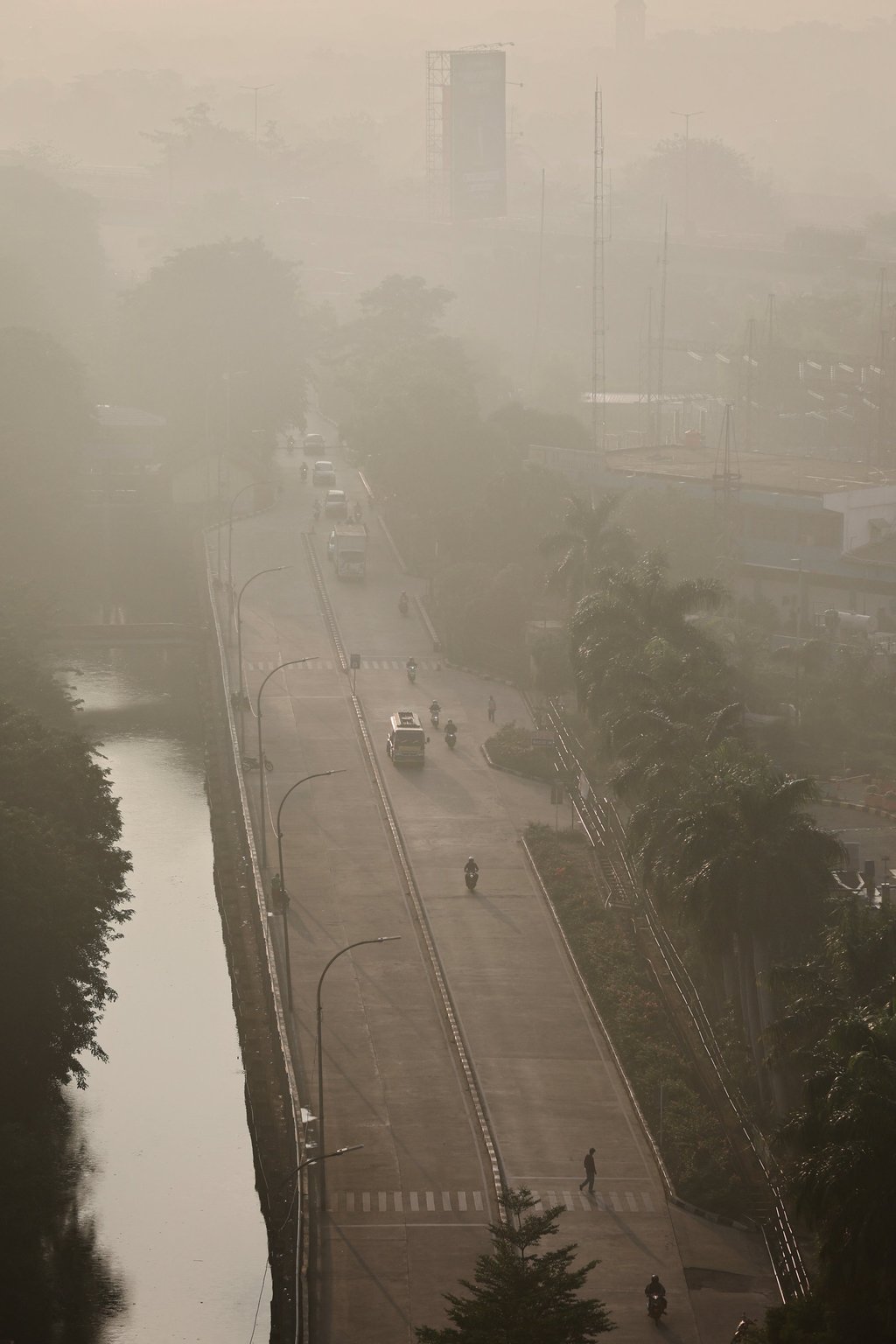Can Indonesia’s Jokowi breathe easy, with air pollution in Jakarta and other cities still causing tens of thousands of premature deaths?
- Pandemic restrictions are easing, but should Jakarta’s millions keep wearing masks when air quality often far exceeds WHO healthy guidelines?
- Nation’s president, and other top officials, are in the process of appealing a landmark court ruling last year which said they had to improve air quality

While Indonesia has finally relaxed its mandatory outdoor face mask policy more than two years after the Covid-19 pandemic began, residents in the capital Jakarta may want to keep masking up just the same.
In the past week, air pollution levels in the city, which has a population of over 10 million, have soared to almost 200 according to air quality pollution indexes, with anything over 150 classified as “unhealthy”.
On June 20, PM 2.5 pollutants or fine particulate matter measuring 2.5 micrometers or less, measured 136µg/m³ in Jakarta, almost 30 times higher than the maximum stated in global air quality guidelines issued by the World Health Organization (WHO).
Two days before, however, when air pollution levels started to rise, Yogi Ikhwan, a spokesperson for the Jakarta Environment Agency, seemed to play down the seriousness of the situation, calling monitors like the US-developed Air Quality Index (AQI) “a private source” and saying the government used its own monitoring stations to assess air quality.

Yet according to Bondan Andriyanu, a climate and energy campaigner for Greenpeace Indonesia, the government’s own website also showed “unhealthy” levels of air pollution across the capital on June 20.